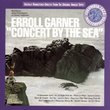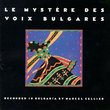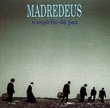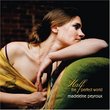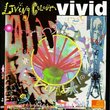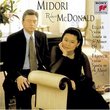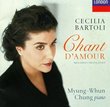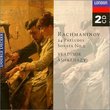| All Artists: Edvard Grieg, Anne Sofie von Otter, Bengt Forsberg Title: Anne Sofie von Otter - Grieg Songs Members Wishing: 0 Total Copies: 0 Label: Deutsche Grammophon Release Date: 6/22/1993 Genres: Pop, Classical Styles: Vocal Pop, Opera & Classical Vocal, Historical Periods, Early Music Number of Discs: 1 SwapaCD Credits: 1 UPC: 028943752121 |
Search - Edvard Grieg, Anne Sofie von Otter, Bengt Forsberg :: Anne Sofie von Otter - Grieg Songs
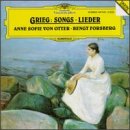 | Edvard Grieg, Anne Sofie von Otter, Bengt Forsberg Anne Sofie von Otter - Grieg Songs Genres: Pop, Classical
Grieg's song's were almost all composed for his wife Nina. She was a singing actress with a considerable stage presence, if not a particularly impressive voice. In fact, Nina and Edvard Grieg were very much the Kurt Weill ... more » |
Larger Image |
CD DetailsSynopsis
Amazon.com Grieg's song's were almost all composed for his wife Nina. She was a singing actress with a considerable stage presence, if not a particularly impressive voice. In fact, Nina and Edvard Grieg were very much the Kurt Weill and Lotte Lenya of the 19th century, though the style and substance of Grieg's songs' is as different from 1920s Berlin as can be imagined. Haugtussa is Grieg's most important song cycle. It's tells the story of a goat shephard abandoned by her lover. Each of the songs is in simple strophic (verse and refrain) form, but the music has a tremendous range and variety, particularly in the folk-tinged harmony. Anne Sofie von Otter's performance is the outstanding Grieg song recital of our time, period. --David Hurwitz Similarly Requested CDs
|
CD ReviewsA warm Spring in Norway Czinczar | Southeast Michigan, USA | 06/20/2004 (5 out of 5 stars) "This is one delicious album. Von Otter has made a wonderful selection of love songs from Grieg. You very seldom hear the Nordic iciness that can be found so often in Grieg's instrumental chamber works. There is beautiful lyrical warmth in these songs written for his wife, springing out of the nature of the lyrics. Flowers explode from the piano accompaniment. The theme of Springtime appears again and again throughout these songs. Von Otter's warm, full voice brings the songs to wonderful life. The recording acoustics have the sound of recital hall instead of a recording studio. But I'm grateful for this. Von Otter's powerful voice singing directly into your ear could be overwhelming. Although the acoustics make Forsberg's piano sound a bit flat. Von Otter and Forsberg sink their teeth into every emotion projected from the lyrics and music, so be prepared for an often unsubtle emotional assault on your sensibilities. The beauty of these neglected songs is brought to life in a vivid way. This album is a treat you can't afford to pass up." GRIEG APPASSIONATO DAVID BRYSON | Glossop Derbyshire England | 07/18/2005 (5 out of 5 stars) "A good deal of care and sensitivity has gone into just making the selection of these 25 songs, before we even reach the performances. Some of the songs are fairly light in sentiment and expression, and none is to full German-Lied weight or portentousness, but there is real passion in most of them. What is blessedly absent throughout is the sentimental trifling that Grieg can sometimes be guilty of.
Von Otter is not one to do things by halves either. As usual she gives the songs everything she's got, which is of course a great deal. Thought has obviously gone into the way she has been recorded too. The acoustic is just faintly suggestive of a cathedral, but a voice like this needs space around it, and I myself support this way of doing things. I simply can't comment on any national or Scandinavian aspects to these readings. In any case I suspect the personal tone of this high-powered singer is a lot more to the point. The song `Spring' on the 18th track of this disc is well known from its orchestral version, but never in the innumerable orchestral renditions, many by Scandinavian orchestras, that I've heard has the climactic phrase of the melody been put over with such power and intensity as it is here. Obviously, the music has to be able to stand up to such an approach, and I find that it comes through with flying colours. The songs are mainly love-lyrics with some associated folk-pastoral numbers in a familiar way. There are some sad moments, particularly when the poor shepherdess loses her love in the 7th song, and the text of the following and final poem in this cycle about the brook must surely recall Schubert's Baches Wiegenlied to everyone, but even it stops short of what happens in that. In general however the tone is one of longing with intermittent joy, and every song seemed to me perfectly well suited to its singer. Von Otter's partnership with Forsberg is well and truly established by now and there is a sense of complete understanding between them as we would expect. Forsberg isn't afraid to let his concert grand rip on occasion either, nor would I have wanted him to be. What I would have liked all the same is a little more refinement in his touch. He provides that very nicely indeed in the very last item in the recital. If he had done this more consistently throughout my mind would have been veering off less into tangential thoughts about how Gould might have handled such piano-writing. The liner-note is brief but helpful, and full texts of the lyrics (some German, mostly in alternative forms of Norwegian) are provided with English translation." |

 Track Listings (25) - Disc #1
Track Listings (25) - Disc #1